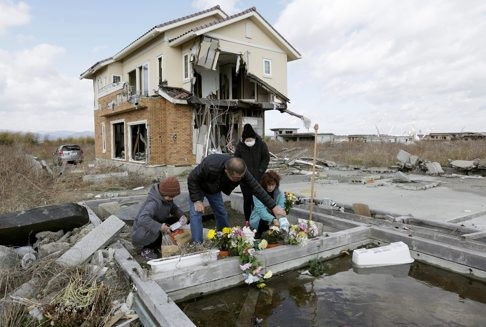
Nuclear power isn’t the way forward for Hong Kong
Frances Yeung says Hong Kong should focus on renewables and natural gas for a low-carbon future, rather than risk a disaster like Fukushima
While the world’s leaders discuss climate change in Paris, Hong Kong has an opportunity to announce a cleaner energy plan that will reduce greenhouse gases and keep its residents safe from the dangers of nuclear power.
By conserving power and developing renewable energy, Hong Kong can stop importing nuclear energy from the mainland while reducing greenhouse gas emissions. Hong Kong must create a clean climate road map, free of the dangers of nuclear energy.
Nuclear power supporters ignore the dangers... However, nuclear waste is a significant threat to the environment
In 2010, the government proposed that the share of nuclear power in its fuel mix should be substantially increased, to 50 per cent by 2020, to reduce greenhouse gas emissions. Soon after this announcement, the radiation leak at Fukushima in Japan occurred, arousing strong opposition from citizens who urged the government to revoke the plan. In 2014, the government finally confirmed that nuclear power should be 25 per cent of Hong Kong’s fuel mix.
READ MORE: Hong Kong should end nuclear energy imports after Daya Bay contract ends in 2034, Greenpeace says

READ MORE: China’s nuclear power equipment makers deserve a closer look, say analysts
Hong Kong also has the potential to develop renewable energy. Research by City University estimates that setting up solar energy equipment equivalent in size to 30 per cent of Hong Kong’s developed areas would be sufficient to supply 30 per cent of electricity needs.
Hong Kong should learn from past tragedies and develop renewable energy and a clean, low-carbon future.
Frances Yeung is a senior campaigner at Greenpeace
